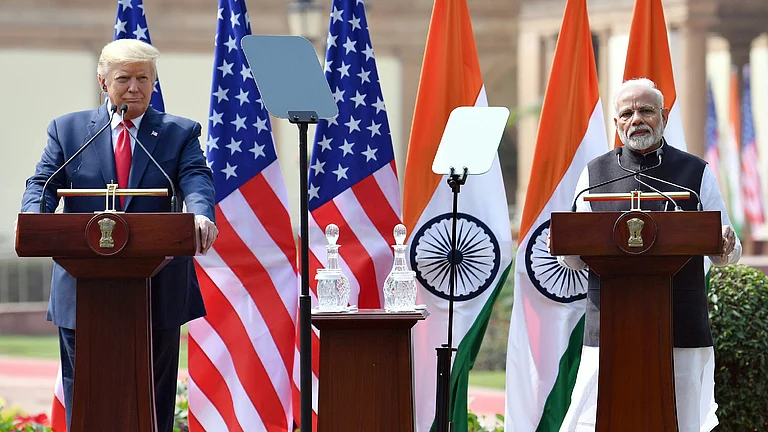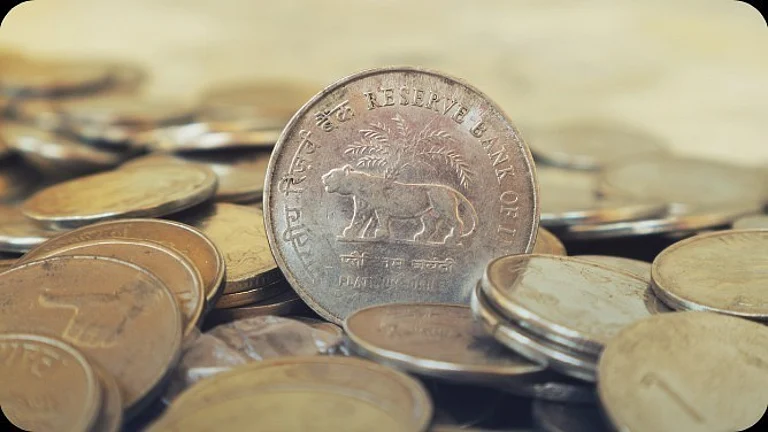US Elections: Donald Trump or Kamala Harris. This has been a topic of concern with regard to the US presidential elections. In New Hampshire's Dixville Notch (first place to cast a ballot), both Harris and Trump got 3 ballots each.
While it signifies a tough fight, it’s also too soon to jump to a conclusion about the results. What becomes significant as time runs towards the result day is how the election of the western democracy will impact nation states. Here we are talking about India.
Already there have been discussions about how this election will impact the Indian economy, stock markets, and the list goes on. Trump, for one, already expressed caution earlier about India imposing trade tariffs on imports. At the same time, he praised Prime Minister Narendra Modi and called him a dear friend.
Harris, meanwhile, has always had a consistent relationship with India. This is something that is reflected in her work in the last Biden administration. The US elections are important for India. There is no doubt about it, and the start-up system is no exception to it.
“Stronger investment relations between India and the US resulting from a stable and supportive government in the US will help Indian start-ups positively and result in increased funding for Indian start-ups,” said Sandiip Bhammer, Founder and Managing Partner, Green Frontier Capital.
Some prominent Indian start-ups with presence in the US include Ola, Zomato, InMobi, Hike, and CleverTap. The Silicon Valley has always been a dream destination for start-ups and investments. Non-profit organization The Indus Entrepreneurs (TiE) Silicon Valley is also reportedly focusing on mentoring Indian start-ups to grow in the US, as per Anita Manwani, president of TiE.
Just to look at some numbers, as per industry body Nasscom, in 2020, US investors participated in 30 per cent of start-up deals. This amounted to 60 per cent of the total investments. Additionally, US investors were part of 75 per cent of the deals, adds the report.
Impact on Indian Start-Up Ecosystem
“If Harris comes into power, I expect her administration to favor pro-globalization and pro-technology policies, which could sustain or even boost US investor interest in Indian start-ups. This approach would likely support collaborations in areas like tech development, climate initiatives, and healthcare, aligning well with where Indian start-ups are already innovating,” said Milan Sharma, Founder and MD, 35North Ventures.
Experts have meanwhile expressed apprehension about Trump coming to power. Trump’s favor for rising trade restrictions is a cause of worry for many. For instance, with Chinese goods, the former president promised to impose a tariff of 60 per cent or more on these imports. Meanwhile, tariffs on all US imports would be as high as 20 per cent. This move, as per Trump, will help boost job manufacturing in the country and promote jobs in the country.
“On immigration, Trump’s past restrictive stance, especially on the H-1B visa program, impacted Indian professionals and business owners in the US,” said Sharma. A revival of these policies might complicate access to American job markets, especially for tech talent, potentially pushing Indian firms to look to other markets or even strengthen domestic job opportunities, added Sharma.
However, some experts are optimistic about the return of Trump. They believe that a Trump presidency would likely streamline regulations and focus on fostering direct investment. This in turn will potentially lead to increased funding for Indian start-ups as U.S. investors seek out high-growth opportunities abroad. “Given that U.S. investors accounted for 60 percent of total investments in Indian start-ups during Trump's presidency, the election results are crucial. If Trump wins, we can expect this scenario to remain stable or improve, as his administration's policies are highly favorable towards business and investment,” said Somdutta Singh, Founder and CEO, Assiduus.
Singh also highlights that if Harris takes office, there might be a more cautious approach from US investors who could reassess their strategies amidst changing trade policies. “While Harris's multilateral trade agreements could initially seem beneficial, they risk creating an overly bureaucratic environment that could deter investors,” said Singh.
Protectionism is the key
One thing that has been constant, as per experts, is that protectionism is something that will increase in the US. As per Fitch Ratings, the US elections could lead to a surge of trade protectionism.
“In terms of potential shifts in trade policy, there is concern regardless of which political party comes into power in the U.S., as both sides seem likely to adopt more protectionist policies,” said Biswajit Dhar economist and retired professor from Jawaharlal Nehru University. Dhar further added that while traditionally, Democrats have been more protectionist and Republicans more trade-oriented, the Trump administration’s tariffs set a precedent that Republicans may continue.
“Under Biden, the US has implemented a robust industrial policy that could bring further tariffs, a pattern also seen in India with its Production-Linked Incentive (PLI) schemes. Given that neither party is likely to abandon these policies, increased tariffs and a shift towards self-sufficiency are likely,” added Dhar.
Meanwhile, Fitch Ratings has highlighted that India, which is less export-oriented, will remain unaffected due to the protectionism. It says, “Under a worst-case scenario with retaliation from the US’s trading partners, growth in China, South Korea, and Vietnam would be particularly affected, with real GDP in 2028 being 1 per cent or more below the level under our current baseline. India, which is less export-oriented, would be relatively unaffected.” As the election outcome looms in, it remains to be seen how things will be for the start-up ecosystem in the country.































